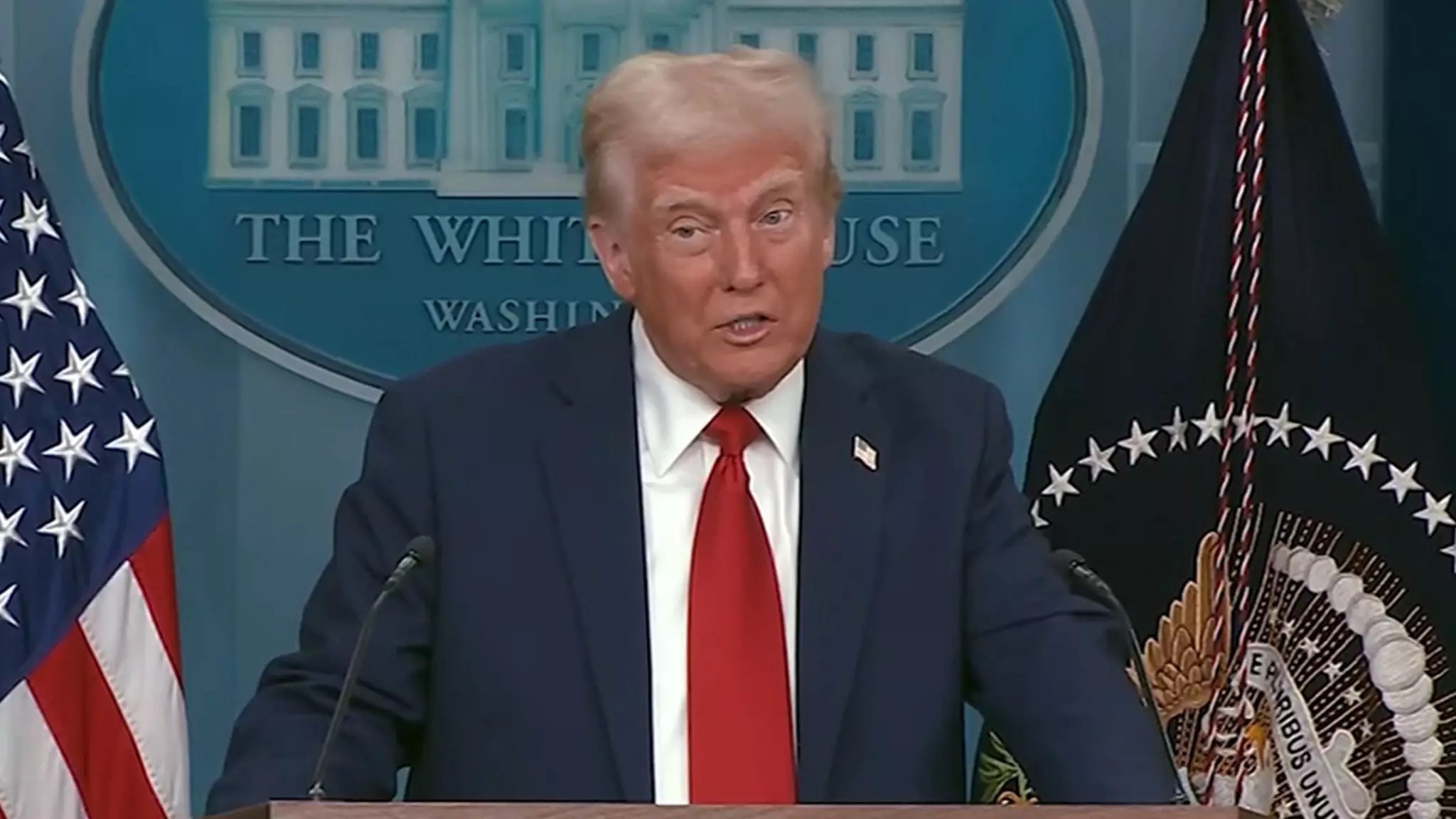On a tragic evening, a devastating collision occurred over Washington, D.C., involving a passenger airplane and a military helicopter, leading to the loss of 67 lives. The reeling aftermath of this disaster has brought both tactical moves and political rhetoric to the forefront of national discourse. President Trump‘s reaction to the incident puts the emphasis not only on the need for accountability but also on the interplay of politics and emergency management. As investigators delve deeper into the events leading up to the crash, the dialogue around responsibility and systemic failings emerges prominently.
In the wake of this catastrophe, President Trump has emerged as a vocal critic of the Biden Administration’s handling of transportation safety. During a press conference, he did not hold back from attributing fault, linking the accident to the current administration’s hiring practices, particularly its emphasis on diversity, equity, and inclusion (DEI). Trump insinuated that DEI policies compromised the competency of individuals in crucial roles such as air traffic control. Despite the fact that investigations into the crash are still in their infancy, the former president hastily proposed that such hiring practices could directly correlate with the operational failures that led to this tragedy.
While understanding that tragedy often stirs emotions, Trump’s approach raises significant questions regarding the appropriateness of his assertions. By framing DEI as the culprit without substantiated evidence, he not only risks politicizing a sensitive situation but also undermines the public’s trust in the fact-finding process. Assertions such as “only the best of the best should be air traffic controllers” echo a longing for a perceived standard of meritocracy while hinting at systemic discrimination within the hiring process—a characterization that can be both misleading and harmful.
Transportation Secretary Pete Buttigieg’s rebuttal on social media highlights a counter-narrative that emphasizes a call for genuine leadership rather than finger-pointing. Buttigieg’s comments suggest that, amidst the chaos, it is crucial for leaders to step up and offer not just critique but constructive pathways forward. His insistence on seeking evidence-based assessments of the incident implies a desire for accountability that does not resort to scapegoating but embraces a thorough understanding of the systemic factors at play.
The voices of Trump’s administration following his press conference echoed similar sentiments of accountability, yet many wonder if this strategy does more harm than good in the context of public safety. Is it beneficial to use a national tragedy as a platform for expanding political agendas? A broader discussion around how to balance security, accountability, and structural changes is essential in examining the effectiveness of such positions.
The Role of Leadership in Crisis
Conversely, this incident foregrounds the importance of adept leadership during crises. True leadership must transcend blame and focus on constructive dialogues aimed at prevention and future safety improvements. In the wake of crises, public officials carry the weight of not just immediate response but also long-term implications for policy and public trust. Analyzing leaders’ reactions can be a telling reflection of their priorities.
This tragedy has brought to light how leadership dynamics relate to public safety. While it is essential to draw attention to systemic issues, the emphasis should be on how officials can take actionable steps to remedy the failings of the system, ensuring that no administrative safety net is deemed expendable.
As investigators work to piece together the circumstances surrounding the deadly crash, there is an urgent need for national discourse to prioritize actionable data over political maneuvering. The focus should shift towards enhancing safety protocols, examining current recruitment processes for critical positions, and ensuring that oversight mechanisms are robust.
Ultimately, the aftermath of this tragic event should serve to propel systematic changes rather than political blame games. As the nation processes the enormity of this incident, the push for responsible governance, sound policy, and ethical leadership must take center stage—transforming a moment of grief into an impetus for improvement and safety for all citizens. It is through this lens that resilience and growth can emerge, ensuring that the memories of those lost serve as a catalyst for a safer future.







Leave a Reply